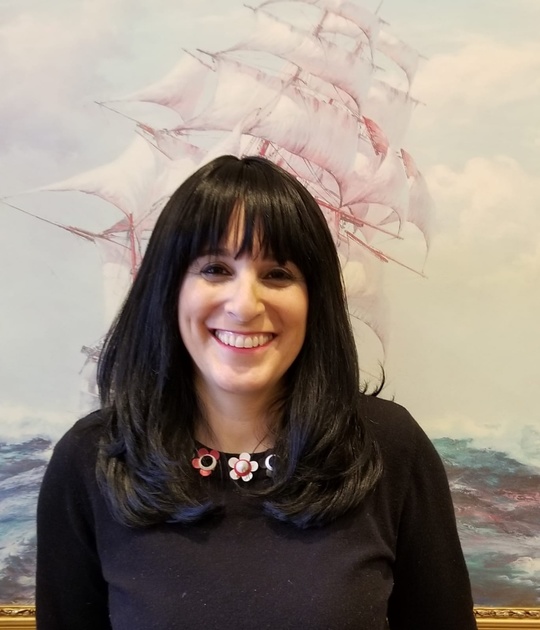
In Part 1 of my column on egocentrism in relationships, I had written that when people have difficulties in relationships, I assess for egocentrism in either of the two people involved in the relationship (whether in my client or the other) in order to help my client manage this difficult relationship successfully.
Do you know how easily I can assess that?
Here's the secret.
If a person says, “I don't understand my rebellious son/unfriendly neighbor/lazy co-worker, but the relationship is more important than my understanding. Teach me how to change, understand, or be in the relationship,” then I know I am dealing with a basically healthy person. When I hear a person say, “First let the other person change and then I can be in the relationship.” or, they pay lip service to understanding by saying, “First I need to understand why that person is behaving the way that way and then I can be in the relationship,” or even, "Of course I want a relationship but my son/daughter/co-worker/cousin is so disrespectful that first they need to talk to me respectfully and then I can have a relationship with them," then I know I am dealing with an ego-centrist (because they will never understand and it's their excuse not to do the work the relationship demands).
Jean Piaget was a psychologist famous for his model of human cognitive development. He divided the stages of child development into a few parts, in which children move from one level to another in the same way that children mature physically, as they age, with the right environmental conditions. So the same way a child will learn to walk, be toilet trained, so too will a child’s mind develop more advanced abilities at each age.
The age of egocentricism in this theory of cognitive development is approximately between two and seven. It is called the preoperational stage. By the time a child has reached the tail end of the pre-operational stage at age seven, he will be able to begin logical thought and mentally represent objects and events with symbols
According to Piaget, egocentrism is three pronged: moral egocentrism, communicative egocentrism, and cognitive egocentrism. But when referring to any of these prongs of egocentrism, we are simply describing the phases of development in this stage, NOT sitting in judgment of a child's character.
Because egocentricity in a child is the immaturity of the brain; the brain’s inability to see a situation from another person’s point of view, children's thoughts and communications are generally about themselves. They engage in parallel play, not interactive play. A child assumes that other people hear, see, and feel exactly as the child does in any given situation. This is evident in the example of a child giving his mother a present of a mud-pie, or mouse, or those horrific baked challos they come home with from school; never thinking that their mother may have other ideas of what she may want as a present. Or ,when a child covers his eyes in peek-a-boo, he assumes that his mother cannot see him.
Egocentricity is best demonstrated by Piaget's Three Mountain Experiment. The modern version of it is placing a child at a turntable with three mountains at eye level, and various objects placed all around. The experimenter sits opposite the child on the other side of the child's view of the mountain. The experimenter, after showing different views of the mountain, will ask the child what the experimenter is seeing. Inevitably, the child will respond to the experimenter's questions according to his own view of the mountain, not the experimenter's.
Which lets us understand, why moral egocentrism is not a judgment on a child of this stage. If a friend breaks his toy, by mistake, a five year old cannot ascribe meaning other than what he sees. So if he knows breaking a toy is bad, explaining to the child that his friend did it by mistake simply has no meaning to him. He remains angry at his friend.
And this is perfectly normal.
For a five year old.
NOT for an adult.
Because when adults exhibit egocentric behaviors, there is something seriously wrong.
It's the inability to feel, hear, understand, or see another person's point of view of a situation. Which makes having a relationship with that person very difficult indeed. Imagine an adult who simply cannot understand the point of view of another. Who simply doesn't get it that the water stays the same in the short, fat glass as the tall, thin one, no matter how much you explain (not really, but that's how frustrating it feels to explain to an egocentric how you think, view, or feel about something!)
It's trying to explain to your insulted mother why you need to go the first Pesach seder to your in-laws. It's explaining to your indignant brother why you need to miss his child's wedding because your wife's grandfather is dying in the hospital. It's explaining to your irritated neighbor why your children are just being children when they play Shabbos morning. It's explaining to your sweet co-worker why it hurts when she uses your ideas and passes them off to your boss as her own. And they just don't get it.
What's the difference between adult egocentrism and narcissism?
Egocentrism is the inabilty to understand the world according to another person; narcissism is the ability to understand but not caring anyway. Extreme narcissism is becoming angry at someone who dares not conform to his way of thinking, being, or doing.
The actions of narcissists are driven by their inflated sense of self; behaviors of egocentrists are a result of only understanding their own needs. Narcissists don't care about others; egocentrists are simply unaware of others.
Narcissists often have inflated self-worth, but can be successful socially when it is to their benefit; egocentrists often have low self-esteem because of their inability to engage with others on a deeper level. Also, egocentrists have difficulty empathizing with others for precisely this reason, while narcissists simply don't care about others. Narcissism can be a personality disorder while ego-centrism is not.
When a client comes to me and discusses a difficult relationship in his/her life, I immediately assess for egocentric thinking in both the client and in the other person. If my client is egocentric, my role is to develop an awareness of others first through the therapeutic relationship. Once that occurs, then building awareness of others in his/her life enables changes in egocentricity and changes in destructive behavior.
When the task of therapy is to help my client cope within a relationship with a family member, co-worker, friend, or neighbor who is egocentric , then things become more difficult. There are varying degrees of egocentricity, and depending on the client's age, stage in life, personality, and resources, therapy will help the client make sense of that other person's behavior and what is needed to either engage in a meaningful relationship, or understand the limitations of an ego-centrist and accept what is possible and letting go of what is not.
And in all cases of difficult relationships, I encourage clients to seek both halachic and spiritual guidance from a rav, and enlist the help and support of other loved ones in their lives.
And yes, while many of us can sometimes say in frustration, “I just don't get you!” what makes us human and not egocentric is our willingness to put aside our lack of ability to understand, and put the relationship—not our needs—paramount in the relationship.
NOTE ORIGINALLY PUBLISHED IN BINAH MAGAZINE
Look me up on LINKEDIN https://www.linkedin.com/in/mindy-blumenfeld-a8067583
Check out my book THERAPY SHMERAPY, available in bookstores and through Amazon
Browse through my previously published articles on my former blog Therapy Thinks and Thoughts at frumtherapist.com/profile/MindyBlumenfeldLCSW
Read current articles in my bi-weekly column THERAPY: A SNEAK PEEK INSIDE in Binah Magazine, available on newsstands every Monday.
 Previous
Previous

